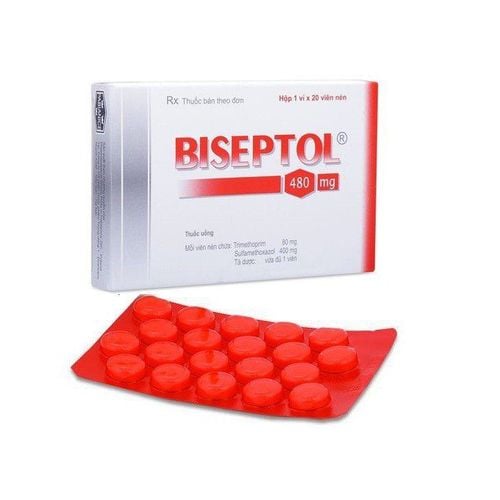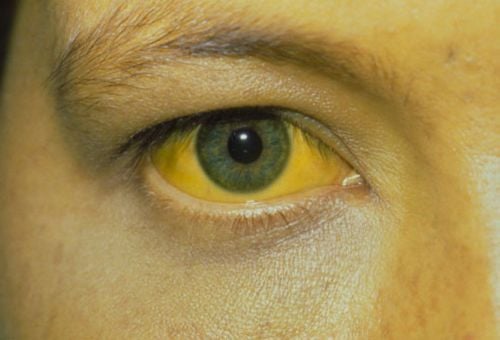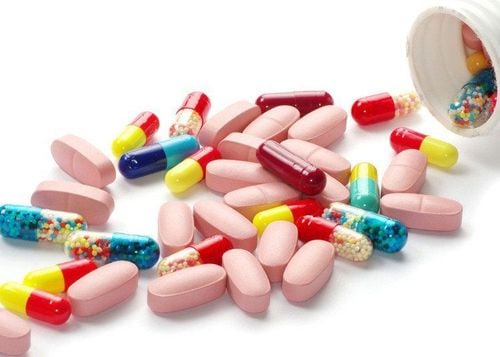This is an automatically translated article.
Post by Master, Doctor Mai Vien Phuong - Department of Examination & Internal Medicine - Vinmec Central Park International General Hospital
According to the Crohn's & Colitis Foundation (CCF), approximately 780,000 Americans have Crohn's disease. Most people with Crohn's disease have cycles of flare-ups and remissions. So how do you manage Crohn's disease during an emergency flare?
1. What is Crohn's disease?
Crohn's disease is a type of inflammatory bowel disease. According to the Crohn's & Colitis Foundation (CCF), about 780,000 Americans have the condition.
Crohn's disease is an inflammatory bowel disease with symptoms of abdominal pain, severe diarrhea, fatigue, weight loss, and malnutrition. The inflammation caused by Crohn's disease often spreads deep into the layers of intestinal tissue, which is both painful and debilitating, and can sometimes lead to life-threatening complications.
2. Crohn's disease has periods of flare and remission
Most people with Crohn's disease have cycles of flare-ups and remissions. Symptoms associated with gastrointestinal inflammation are at their worst during a Crohn's disease flare. In remission, people with Crohn's feel pretty normal.
Common symptoms of a Crohn's flare include:
Abdominal pain (often worse after meals) Diarrhea Painful bowel movements Blood in the stools Weight loss Anemia Fatigue
Smoking can make worse symptoms
There may be a link between smoking and Crohn's disease. Not only can smoking make people have worse or more frequent symptoms, but some data suggests that smoking may even increase the likelihood of developing Crohn's disease.
Akram Alashari, MD, surgeon and critical care physician at the University of Florida, says: “Smoking has been reported to affect overall disease severity, with smokers having a higher incidence relapse rate is 34% higher than in non-smokers.

3. Crohns Disease: An Urgent Flare Guide
A flare is a sudden reactivation of symptoms for people living with Crohn's disease. Flare-ups can cause active inflammation anywhere along the digestive tract with:
Mouth sores Abdominal cramps Nausea Diarrhea Rectal pain Joint pain Rash Some possible causes of flares include These may include:
Smoking Pollution Interruption or change in medication Chronic stress Nonsteroidal anti-inflammatory drugs Antibiotics However, it is important to note that research is often inconsistent on the exact cause outbreaks of Crohn's disease. Crohn's is a complex condition and scientists don't fully understand it. Research is underway on how to predict flares. Many factors have been shown to play a role in the disease, including:
Genetics Healthy gut bacteria Immune system health To help prevent flare-ups, you should take medications that are Doctors recommend taking it regularly and as directed. You should also work with your doctor to create a treatment plan for flare-ups. Research shows that treatment is most effective when it comes to focusing on the specific symptoms and severity of the flare.
4. Soothe a Crohn's Outbreak
Over-the-counter remedies for Crohn's flare-ups range from topical solutions to oral medications. Be prepared:
Acetaminophen (Tylenol): If your doctor approves, use this for pain relief. Ask your doctor about other alternative pain management recommendations. Diarrhea medications: Under your doctor's direction, control episodes of diarrhea with medications such as loperamide (Imodium) or bismuth (Pepto-Bismol). Soothe Wet Wipes: Soothe anal irritation with a wet washcloth rather than toilet paper, which can feel abrasive to tender skin. Vitamin-rich ointments: Use these to relieve anal itching. Sitz bath: Soak in warm salt water to soothe fissures or pain caused by anal fistulas. Hand sanitizer with mild, fragrance-free soap: Use these to wash your anal area. Medicated mouthwash: Gargle and gargle to dilute the pain of mouth ulcers. Moist heat: Use a moist heat patch to ease joint discomfort, then take time to rest. Physical therapy: Therapists can show you a variety of range-of-motion exercises to help ease joint pain.

5. Precautionary safety measures
You can take many safety precautions to make sure you stay healthy. Every day, remember to exercise for at least 30 minutes if possible and get a good night's sleep. Eat a nutritionally balanced diet and consider taking a multivitamin. Also, listen to your doctor and take your prescribed medication regularly. Even if you have no symptoms, missing a dose can lead to a flare-up.
If you smoke, take steps to quit. Smoking has been shown to reduce healthy bacteria in the gut, which may affect the course of Crohn's disease. Smoking also damages intestinal tissue and is a risk factor for cancers of the mouth, throat, esophagus, stomach, intestines, liver, and pancreas.
6. Treatments for Crohn's disease
Crohn's disease can manifest in a multitude of different ways. Your symptoms and frequency of flare-ups may be different from those of other illnesses. Thus, treatments are tailored to the specific symptoms and severity of any particular individual at any given time.
There are many medical therapies to treat Crohn's disease. Therapies include immunosuppressants, steroids, and biologics.
Please dial HOTLINE for more information or register for an appointment HERE. Download MyVinmec app to make appointments faster and to manage your bookings easily.
References:
Frolkis, A., Dieleman, L. A., Barkema, H. W., Panaccione, R., Ghosh, S., Fedorak, R. N., & Kaplan, G. G. (2013, March). Environment and the inflammatory bowel diseases. Canadian Journal of Gastroenterology, 27 (3), e18-e24 ncbi.nlm.nih.gov/pmc/articles/PMC3732155/ Inflammatory bowel disease fact sheet. (2012, July 16) womenshealth.gov/publications/our-publications/fact-sheet/inflammatory-bowel-disease.html














